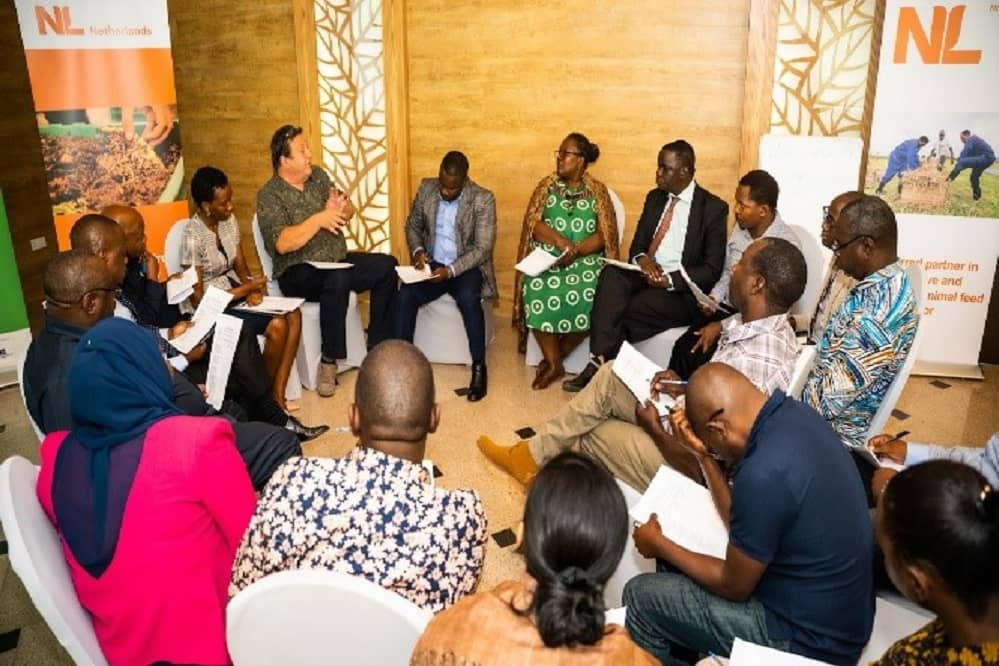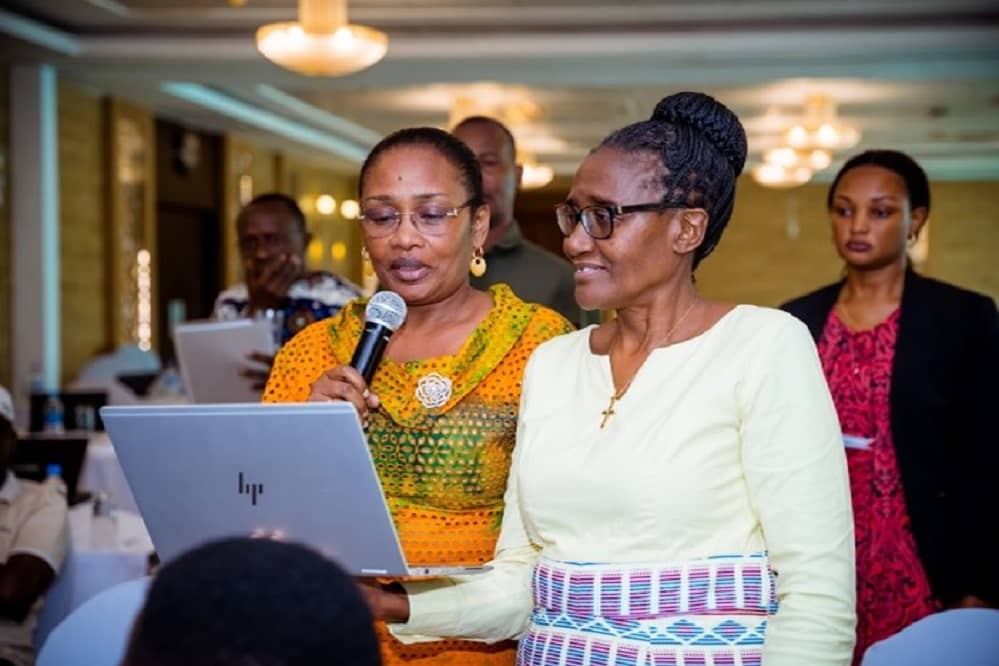The government of Tanzania, in collaboration with the Netherlands Embassy in Dar es Salaam and Southern Agricultural Growth Corridor of Tanzania (SAGCOT) and other stakeholders, partner to cut down the production costs of animal feeds and address challenges facing livestock keeping in the country.
Speaking in Dar es Salaam, in September, this year, Minister for Livestock and Fisheries Abdallah Ulega (in the above image) said to reduce the production costs of animal feeds in Tanzania required collective efforts. He said utilizing emerging technologies, fostering innovation, sharing knowledge, forming partnerships, and cultivating an enabling environment were crucial for improving the quality of animal feeds. He also stressed the importance of attracting investments and promoting healthy competition during a workshop organized by the Netherlands Embassy in collaboration with Southern Agricultural Growth Corridor of Tanzania (SAGCOT) in Dar es Salaam. He said production costs in the country were high compared to neighboring countries and called for increased creativity, utilization of local resources and addressing climate change challenges. With 223 registered feeds mills in Tanzania, only 9 per cent operate at professional level.
The Minister appealed for financial support for producers to ensure sustainability and called for regulators to assist feeds companies in achieving professional standards and maintaining the quality of feeds and in safeguarding both farmers and consumers.
Minister for Livestock and Fisheries Abdallah Ulega (seated center) poses for a group photo with the Ambassador of the Netherlands, H.E Wiebe de Boer and the Regional Agriculture Counsellor of the Netherlands Embassy Bart Pauwels (second left), during a workshop on competitiveness of animal feeds in Dar es Salaam on September 29, 2023.
Tanzania feeds subsector at a glance
Tanzania's agricultural landscape heavily relies on both crop production and livestock keeping, which are vital for the livelihoods of over 80 per cent of its population. The country possesses a significant livestock resource base, including millions of cattle, goats, sheep, pigs, poultry, donkeys, and others. However, there recently fluctuating and rising prices, constituting 60-70 per cent of livestock production costs, thus hindering industry growth due to economic, social, and infrastructural factors. These fluctuations impact the efficiency and sustainability of livestock keeping.
Animal feeds are essential for animal health and productivity, with ingredient variations depending on species, growth stage and available resources, making maize and soya crucial, but susceptible to competition with human food supplies. To address the supply-demand gap, Tanzania heavily relies on imports and domestic alternative protein sources like insect-based proteins and cattle blood. In 2022, Tanzania imported a substantial quantity of soybean products, incurring significant expenditure. High demand for animal feeds, dependence on imports, and limited domestic raw materials necessitate inclusive and sustainable integrated approaches, strategies and coordinated mechanisms to structure the industry, enhance domestic capabilities, and improve the overall efficiency of production of animal feeds.
For his part, H.E Wiebe de Boer encouraged stakeholders to use the workshop as a platform to create a road map to achieve competitiveness in the production of animal feeds. “This workshop has come at the right time when the cost of production of animal feeds is increasing day by day, posing a threat to all actors. It is high time we reduced the cost of production of animal feeds to boost production and create immerse opportunities,” said Ambassador de Boer.
Animal feeds study suggestions
Prof David Nyange and Prof Faustine Lekule present findings on recent studies on sources of protein from animal feeds to set a stage for stakeholders ‘discussions.
From a soybean baseline report, Prof David Nyange said Tanzania's diverse livestock population created substantial demand for animal feeds, estimated at 2.5 million metric tons, while the local production met only 30 per cent of this demand, leaving a significant gap.
Despite this, many feeds mill operate at less than 50 per cent of the capacity due to limited raw materials and high operational costs. The processing capacity for soya cake is theoretically sufficient, but often underutilized due to a lack of extrusion capacity.
Additionally, a 2021-study by Prof Lekule explored alternative protein sources for commercialization. Notably, insects and cattle blood were identified as potential sources that could be locally sourced and scaled up. However, professionalizing this subsector requires knowledge, technology, industry acceptance and access to finance.
Animal feeds workshop deliberations
Animal feeds stakeholders from public and private sectors discuss sources of protein limitations and suggestions to improve sustainability and competitiveness in the animal feeds subsector
To ensure sustainable utilization of soya as a raw material, stakeholders emphasized the importance of investing in its commercial production, adopting extrusion technologies, raising awareness of its use, providing access to finance, and ensuring data availability. In terms of alternative protein sources, feeds millers expressed their willingness to explore, provided the ingredient offers high quality sustainable raw materials at an affordable cost.
In conclusion, Mr Bart Pauwels, the agricultural counsellor of the Netherlands Embassy, stressed the importance of collaboration and support from both local and international actors to enhance competitiveness in the production of feeds in Tanzania through private sector investments.
More information about the summit
- Pictures impression of the event https://photos.app.goo.gl/kWUZJFRawxRY9mDY8
- Study report on Alternative proteins for animal feed Tanzania
- A happy chicken, a happy meal: Towards a safe and sustainable poultry sector
- Poultry Subsector - Compliance with Standard Operating Procedures in raising healthy broiler chicken | Tanzania | Agroberichten Buitenland
- Sagcot soya initiative
- https://drive.google.com/file/d/1RKA2oJA1hj4nNLGAoBKGiXME2WsYqNR5/view?usp=sharing
- https://issamichuzi.blogspot.com/2023/10/ubalozi-wa-uholanzi-nchini-sagcot.html
- https://fullshangweblog.co.tz/2023/10/02/ubalozi-wa-uholanzi-na-sagcot-waandaa-kongamano-la-kuongeza-ushindani-sekta-ya-vyakula-vya-mifugo-vyenye-protini/
The Embassy provides regular updates on developments in the agriculture sector. To receive the updates follow us on our X (Twitter) account @NLAgriTanzania and subscribe to our newsletter by sending an email to dar-lnv@minbuza.nl.

